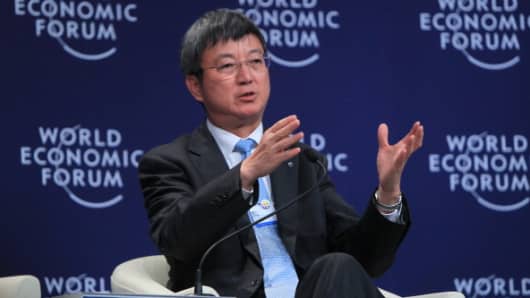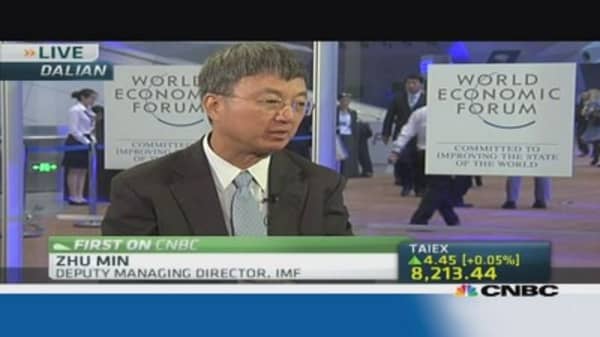
ChinaFotoPress | Getty Images
Zhu Min, Deputy Managing Director of the International Monetary Fund
"I don't see a short-term crisis in emerging Asia because the situation is very different from 1997. Fundamentals are much better in terms of government debt and corporate debt, while household debt levels are much lower. Reserve levels are much higher and the net international investment position is much better.So, countries are in a much better position," stated Zhu.
He also stressed that governments must embrace transparency and greater clarity on policy framework as well as public communication in order to meet the higher expectations that markets carry as a result of globalization.
(Read more: How this Asian nation plans to fight the taper turmoil)
Zhu highlighted the importance of emerging nations in the Fund's overall decision-making process and described how the group has been incorporating more views and thoughts from those economies when forming global policies.
"For example, we've developed a macro-prudential framework, which is useful for emerging markets. It gives them a certain way to handle capital flows and manage macro stability – those things enhance the relationship between us and emerging market members," he added.
(Read more: US recovery will aid emerging markets: StanChart CFO)
When asked about the impact of next week's Federal Open Market Committee meeting, the Federal Reserve's decision-making body, Zhu Min said that volatility could definitely be expected.
"If the rewinding of monetary policy involving purchases of $85 billion to $65 billion, and $35 trillion balances to $1.5 trillion – that's a whole long process. It will involve lots of technical things and the market is not sure how this process will be managed," he said.
— By CNBC.com's Nyshka Chandran. Follow her on Twitter @NyshkaCNBC




